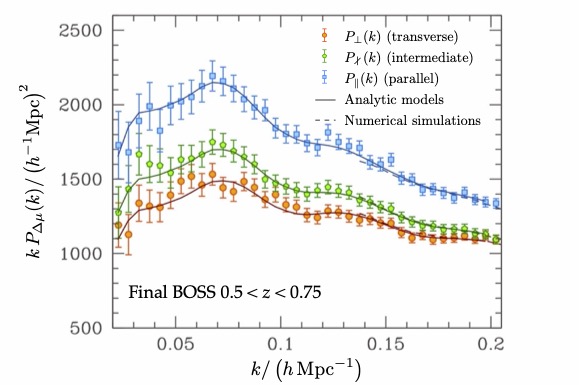Ariel
Sánchez
Cosmologist

Cosmologist


I am a member of the science staff of the Max Planck Institute for Extraterrestrial Physics (MPE) at the Optical and Interpretative Astronomy (OPINAS) group. I obtained my PhD in Astronomy at the Faculty of Mathematics, Astronomy and Physics (FaMAF) of the National University of Cordoba (UNC), Argentina, working at the Institute of Theoretical and Experimental Astronomy (IATE), where I had a doctoral fellowship from CONICET.
My research interests are cosmology and the analysis of the large-scale structure of the Universe. Among other projects, I was involved in the Baryon Oscillation Spectroscopic Survey (BOSS) and the extended Baryon Oscillation Spectroscopic Survey (eBOSS) which were designed to probe the expansion history of the Universe by providing accurate measurements of the signature of baryonic acoustic oscillations (BAO). I am currently involved in some of the most ambitious galaxy surveys of this decade, the Hobby-Eberly Telescope Dark Energy Experiment (HETDEX), the Dark Energy Spectroscopic Instrument (DESI) and the Euclid mission.
My research is focused on observational cosmology and the study of the large-scale structure of the Universe. I am interested in the combination of theoretical work with new precise observations, particularly in the analysis of baryonic acoustic oscillations (BAO) and redshift-space distortions (RSD), to obtain robust percent-level cosmological constraints, with emphasis on the accurate determination of the properties of dark energy and potential deviations from Einstein's theory of General Relativity.

Since the decade of 1970, astronomers have pushed to build increasingly larger 3D maps of the distribution of galaxies on cosmological scales. A new generation of revolutionary projects is taking this task to a new level.
Read More
A battery of robust statistical tools allows us to access the wealth of cosmological information encoded in the large-scale distribution of galaxies.
Read More
Current data sets can constrain the basic parameters describing our Universe. The emerging picture is more complex and richer than originally expected.
Read MoreI completed my Habilitation at the Ludwig Maximilians University (LMU) in 2021. I offer the course "Formation and Evolution of Cosmic Structures" for the Masters in Physics and Astrophysics at LMU. You can find my lecture notes and the problems sheets of the tutorials here.